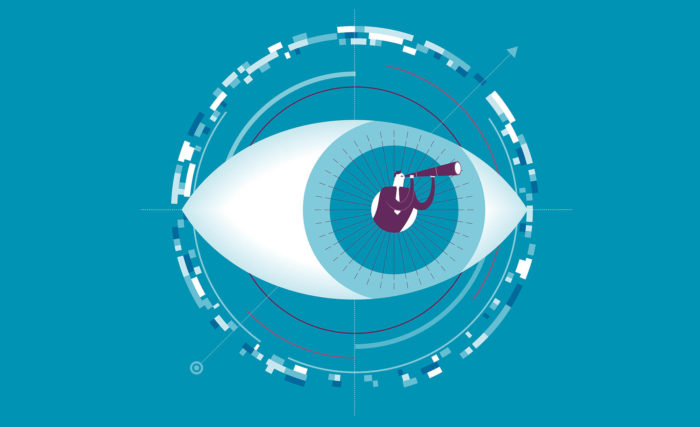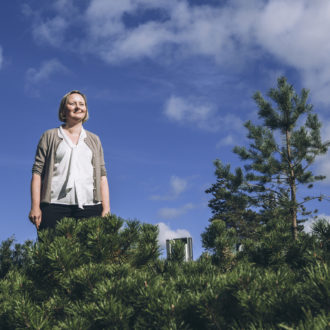While some of Finland’s more media-friendly digital health-tech products garner publicity around the globe, perhaps its greatest asset is its extensive network of biobanks and research centres.
Eight major biobanks currently collect, analyse, and store Finnish data samples. When these biobanks are linked with the single-payer healthcare system, in which every Finnish citizen is registered under one national programme, virtually the entire population structure can be mapped, grouped, and analysed. And because Finland has historically had a largely isolated and homogenous population, it provides exceptional opportunities for targeting genomic variations that underlie diseases.
Such a combination is invaluable to medical companies, both domestic and global.
“What the modern medical vision needs is big data,” says Dr Aarno Palotie, faculty member at the Centre for Human Genome Research in Boston and at the Broad Institute of MIT and Harvard.
“Biobank samples, per se, are worthless unless they are linked with data. We have a healthcare system linked with social security numbers, which provides access to longitudinal healthcare over decades, something that isn’t possible in many places.”
Access and opportunities

Illustration: iStock
In Finland close cooperation exists between both public and private organisations and enterprises. The country has also been instrumental in the development of Europe’s legislation for the implementation and security of health-related data, as well as in refining domestic legislation – both of which are key for creating new methods and opportunities for research and innovation.
Thus, measures are being taken to bolster the country’s reputation as the premiere destination for medical research and business.
“There is a lot of governmental support,” says Palotie. “I would especially praise what the ministries have done to ease the regulatory burden here, especially for health-related studies.”
One example is the working group appointed by the Ministry of Social Affairs and Health to prepare to set up a genome centre. The centre’s tasks would include taking responsibility for the creation and development of a national genome database.
Sitra, the state-based Finnish Innovation Fund, spearheaded the implementation of the recently completed Medical Research Map, which aims to increase the transparency of the collaboration potential between global pharmaceutical companies and Finnish medical faculties. Support for the report has been high, with five Finnish medical faculties and 16 of the world’s largest pharmaceutical corporations contributing to it.
The report will be used to implement Finland’s health sector growth strategy, which has become increasingly important. Recent surveys indicate that the greatest area for potential cooperation between multinational pharmaceutical companies and domestic medical faculties is that of research related to cancer and cardiovascular diseases.
Quality and depth

Photo: Visit Finland
The healthcare sector in Finland is ripe for growth. Tekes, the Finnish Funding Agency for Innovation, estimates that investments into Finnish companies working in the wellbeing and healthcare sectors will reach into hundreds of millions of euros over the next five years.
The competition, however, is serious. The UK, for example, operates a biobank comprising half a million samples, and China is gathering samples from five to ten million individuals over the next decade.
Still, Finland’s data is unrivalled in quality and depth, and the studies are longitudinal, which means that they observe the same variables over periods as long as multiple decades. That, along with the isolated population structure, will be key for variety of study designs essential for drug development.
“Finland has a tradition of doing this type of research,” says Palotie. “Our data quality is superb, our health register data that provides longitudinal follow-up is unique, our infrastructure is top-class, and our legal and ethical and regulatory systems are more in sync with countries where big pharma headquarters are located.”
This is how we do it: Three Finnish companiesGetting a grip on medical data: BC Platforms offers data management and analysis software solutions integrating and analysing large amounts of genomic data together with sample and clinical data. Its customers consist of top-tier research groups, biobanks and major pharmaceutical companies collecting and analysing medical data. Recently BC Platforms extended its research partnership with the Centre for Molecular Medicine at Sweden’s Karolinska Institute, to add capacity for large-scale next-generation sequencing. Diagnosis before symptoms appear: LS CancerDiag’s DiagMMR technology also stems from academic research, in this case from that performed at the University of Helsinki. There researchers realised that most current Lynch syndrome (e.g. colorectal cancer) diagnoses rely on tumour studies, whereas the DiagMMR method enables diagnosis based on a non-invasive tissue sample before a person has developed any signs of cancer. Faster, better, cheaper: The DNA sequencing method developed by Blueprint Genetics helps in analysing genes fast, with good quality and at an affordable price. Founded in 2012, the company is based on a technological innovation renewing a targeted sequencing method. The method is used to analyse genetic factors that cause a predisposition to disease. At the moment clinics around the world are utilising the company’s targeted gene tests in the diagnosis of hereditary diseases. |
By Christopher Ryan Jones, ThisisFINLAND Magazine 2017





